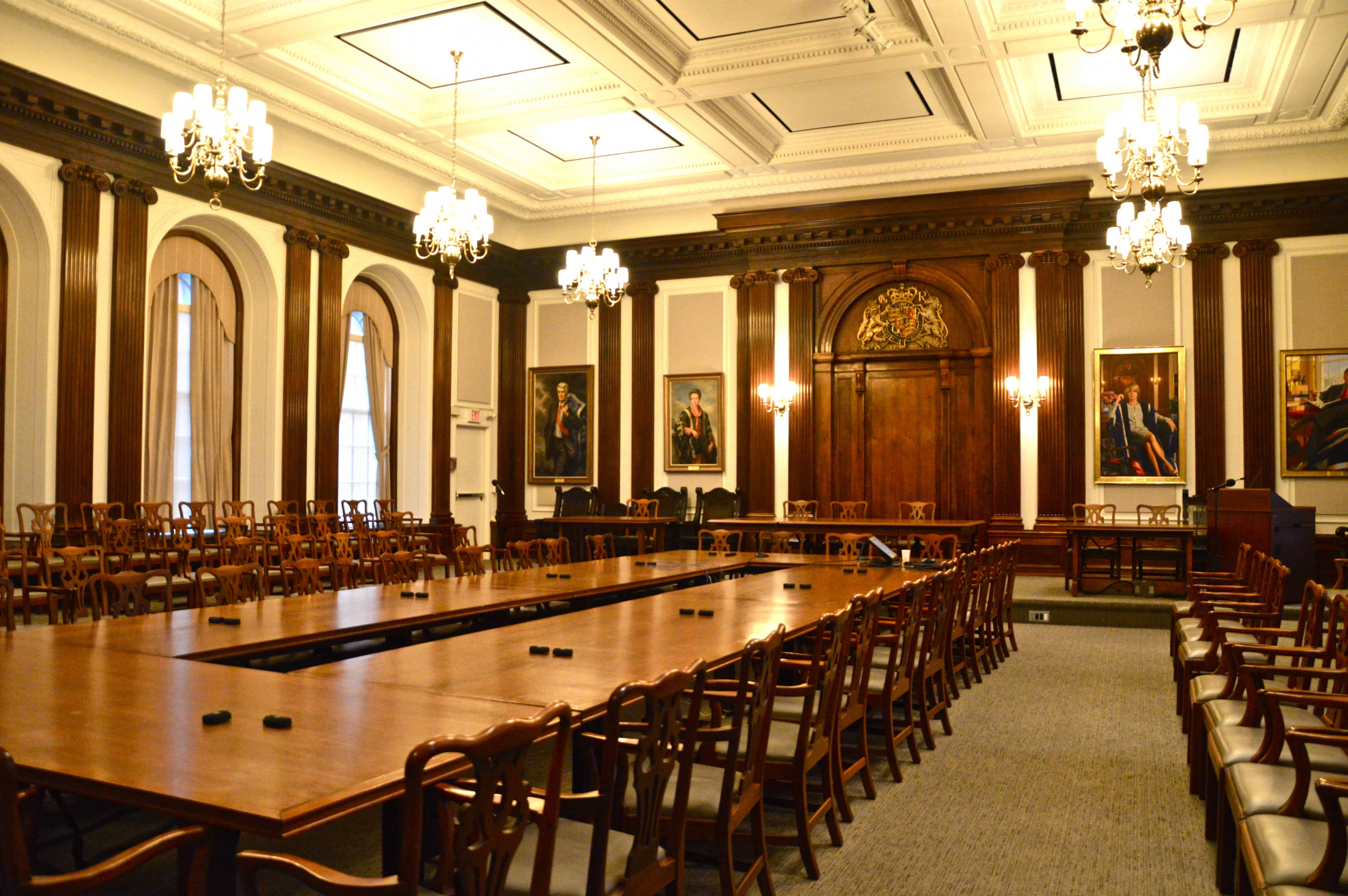Conflict looms in the wake of the fourth meeting of the ongoing Student Societies Summit, which occurred on November 15. New disputes have grown between some student divisions and the UTSU.
On November 15, the Innis College Student Society (ICSS) submitted a letter to the summit detailing its concerns with the union’s involvement in the summit. In the letter, ICSS president Mary Stefanidis stated that she does not feel that the UTSU representatives currently at the summit are knowledgeable enough to properly speak for the union. UTSU vice-president, university affairs, Agnes So and vice-president, equity, Yolen Bollo-Kamara have been representing the union at the summit in place of president Munib Sajjad.
In the letter, Stefanidis wrote: “The subgroup discussions that took place during the last summit meeting only further confirm our concern with the current representation. It is not their capacity as representatives, but merely a lack of knowledge that only comes with experience.” Stefanidis went on to cite examples of these failings, including Bollo-Kamara and So not being informed about perceived problems with Canadian Federation of Students members working on UTSU election campaigns. Stefanidis stated that if Sajjad were present, the issue would have been resolved quickly because of his greater knowledge and experience. Stefanidis also stated that the UTSU had not progressed to the same extent as other societies, maintaining the same arguments and remaining unwilling to compromise.
On November 1, the UTSU submitted a twenty-page letter to the summit in response to a previous letter submitted by the Trinity College Meeting (TCM). The TCM letter in question outlined concerns about the UTSU Board of Directors’ decision to rule engineering director Pierre Harfouche’s motions out of order. Responding to the letter, the UTSU wrote that it was suprised to hear of these concerns, which it felt had not been presented to it in an appropriate manner. At one point, the letter reads: “We often first hear of issues in The Varsity or through being carbon-copied on letters addressed to members of the University staff.” The letter also addressed Sajjad’s concern that the union has been the target of bullying by various other student societies in the past year. Sajjad lists homophobic remarks towards the executive committee and vandalization of the UTSU office among other issues that need to be addressed at the summit.
Engineering Society (EngSoc) president Mauricio Curbelo, posted his response to the UTSU on Facebook on November 15. In the post, he addresses the UTSU’s claims that it was not made aware of issues before Harfouche’s motions were submitted. “This is a deliberate misrepresentation of years of past attempts to engage the UTSU through their own processes to address our concerns,” writes Curbelo. He goes on to speak of the joint committee between EngSoc and the UTSU that met several times over the 2010-2011 academic year about the issue of fee diversion, which the UTSU did not mention in its letter to the summit.
Curbelo also raised concerns about Sajjad not attending the meetings, saying: “They continue to refuse to send their President to the Summit meetings, and did not make a written submission to the Summit until TCM suggested that the refusal to place Mr. Pierre Harfouche’s motions on their Annual General Meeting agenda may constitute undemocratic conduct under the University’s Policy for Compulsory Non-Academic Incidental Fees, possibly resulting in a withholding of fees by the administration.”
He concludes the letter saying that EngSoc does not believe any amount of democratic reform of the UTSU will be a suitable alternative to fee diversion. In terms of other discussions being held at the summit, Curbelo stated: “Our referendum only addressed the question of fees — we continue to be open to exploring different structures of governance which will allow the interests of engineering students to be well-represented in the university’s decision-making processes.”
Sajjad has not responded to request for comment as of press time.
The TCM wrote a letter to the summit in response to the UTSU on November 8. The letter outlined the TCM’s ongoing concerns with the union, including Harfouche’s inability to get his motions included in the upcoming AGM. Ben Crase, co-head of Trinity College, writes that it is telling that Harfouche was unable to create motions that were in accordance with union bylaws, even after attending the UTSU’s Policy Townhall. “It is unclear why the UTSU Executive continues to reject proposals to better engage its membership, especially on issues critical to the future of the Union,” writes Crase. “One can only be left wondering if they are afraid of what they might hear.”
The positions of many of the societies remain the same — the EngSoc, the Victoria College Students’ Administrative Council (VUSAC), and the TCM have all passed referenda pushing for fee diversion from the UTSU. The UTSU continues to claim the referenda are illegitimate.
With files from Alessandra Harkness & Maria Alexiou


